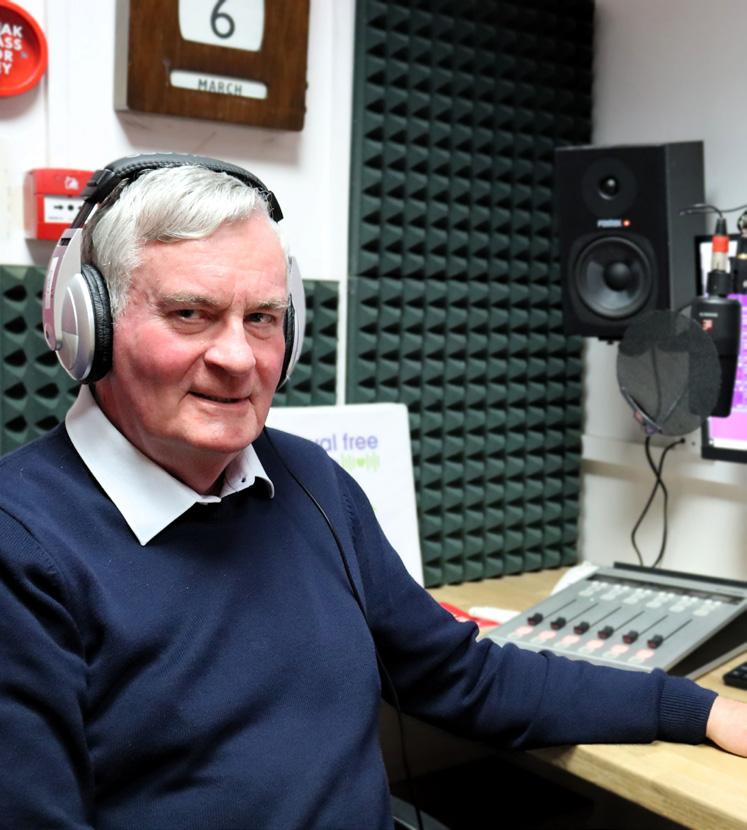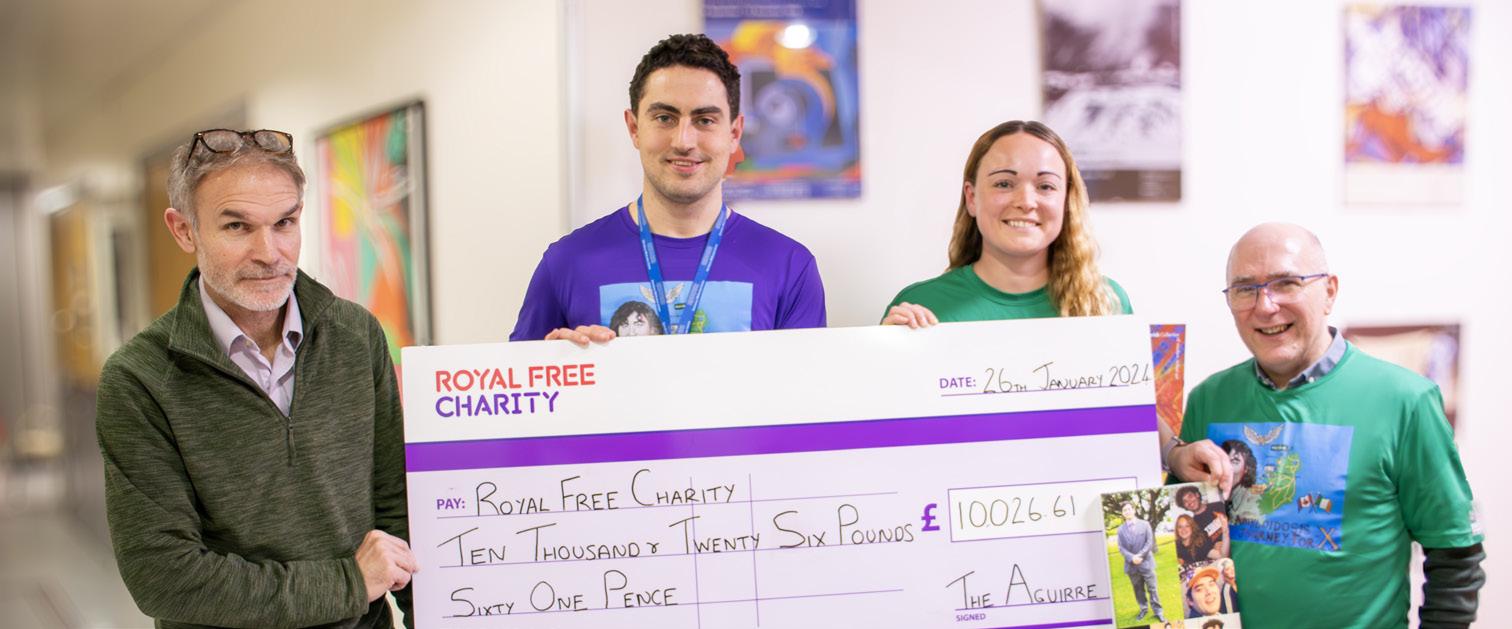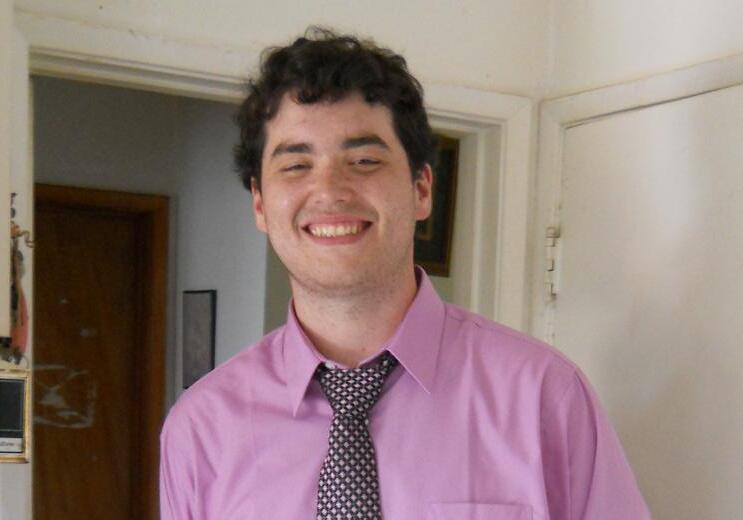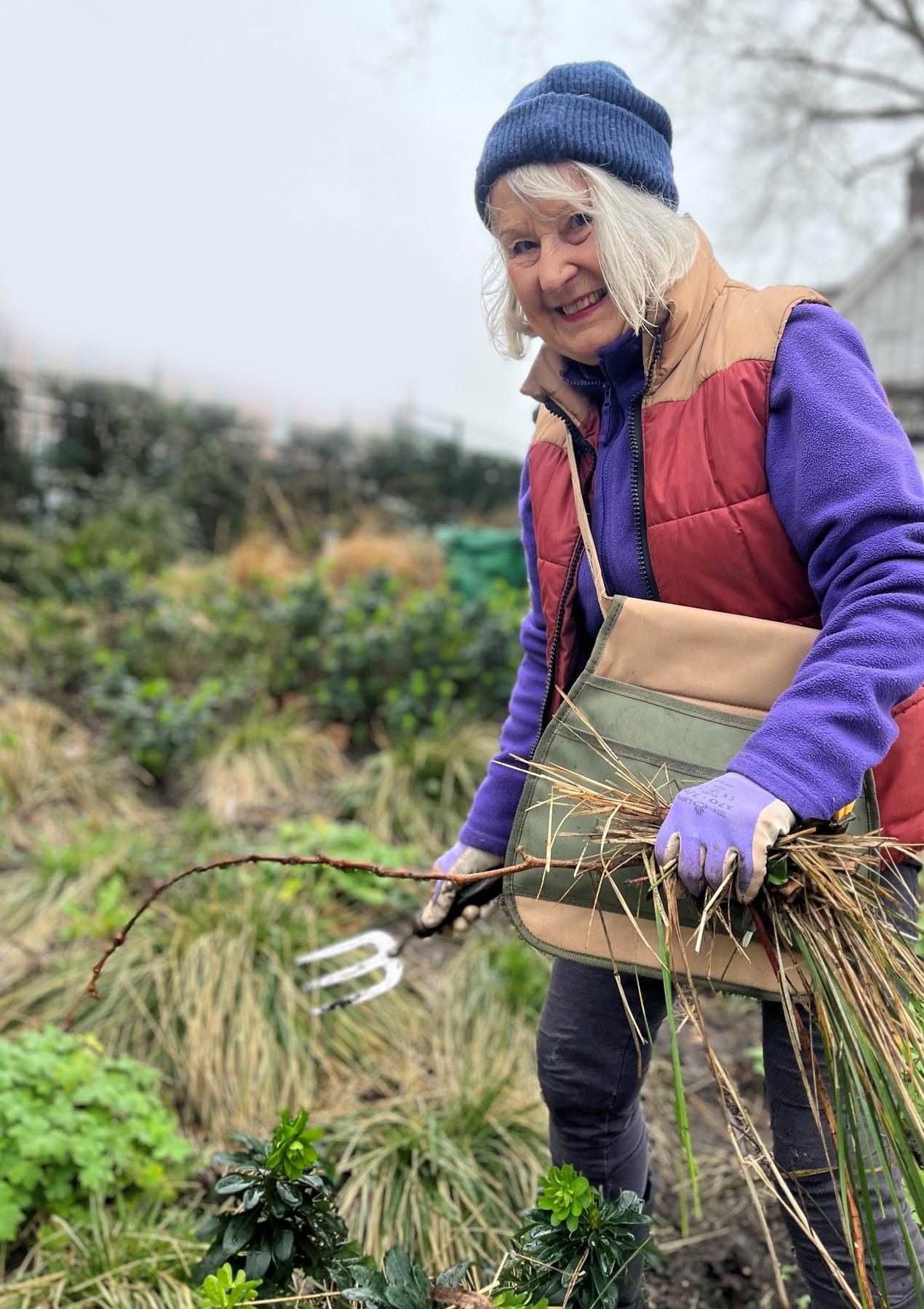
distraction from pain or anxiety, a surge in the body’s happy hormones or a stroll down memory lane – just some of the many ways that live music provided by the Royal Free Charity makes a positive difference to hospital patients.
After spending a week in the Royal Free Hospital with a perforated bowel in April 2023, Sue Rothstein decided to “give back” to the staff by using her talent as a harpist.
“I thought perhaps my time was up,” Sue explained. “I was so grateful to everyone at the Royal Free. I said to myself: ‘If I come out of here, I want to give something back. I’ll just find a way; I’ll just do it.’”
While in the hospital, she was offered a massage from the complementary therapy team - one of many services the charity offers to improve patients’ experience.
“The massage was lovely but also the care from a stranger when one is so low is a beautiful thing. It lifts the spirit and that’s what music can do too.”
She began playing the harp at just 12 years old and now performs “soothing” music for staff and patients in the foyer, on wards or in the hospital children’s school.
Sue said: “If you do manage to lift someone’s spirit, if you bring them joy, or contemplation, or just a place to be; music and art, they are really part of human beings. Music and art are a platform for the soul.”
Most surprising request
O’Carolan’s Concerto by Turlough O’Carolan - a 17th century Irish harpist and composer
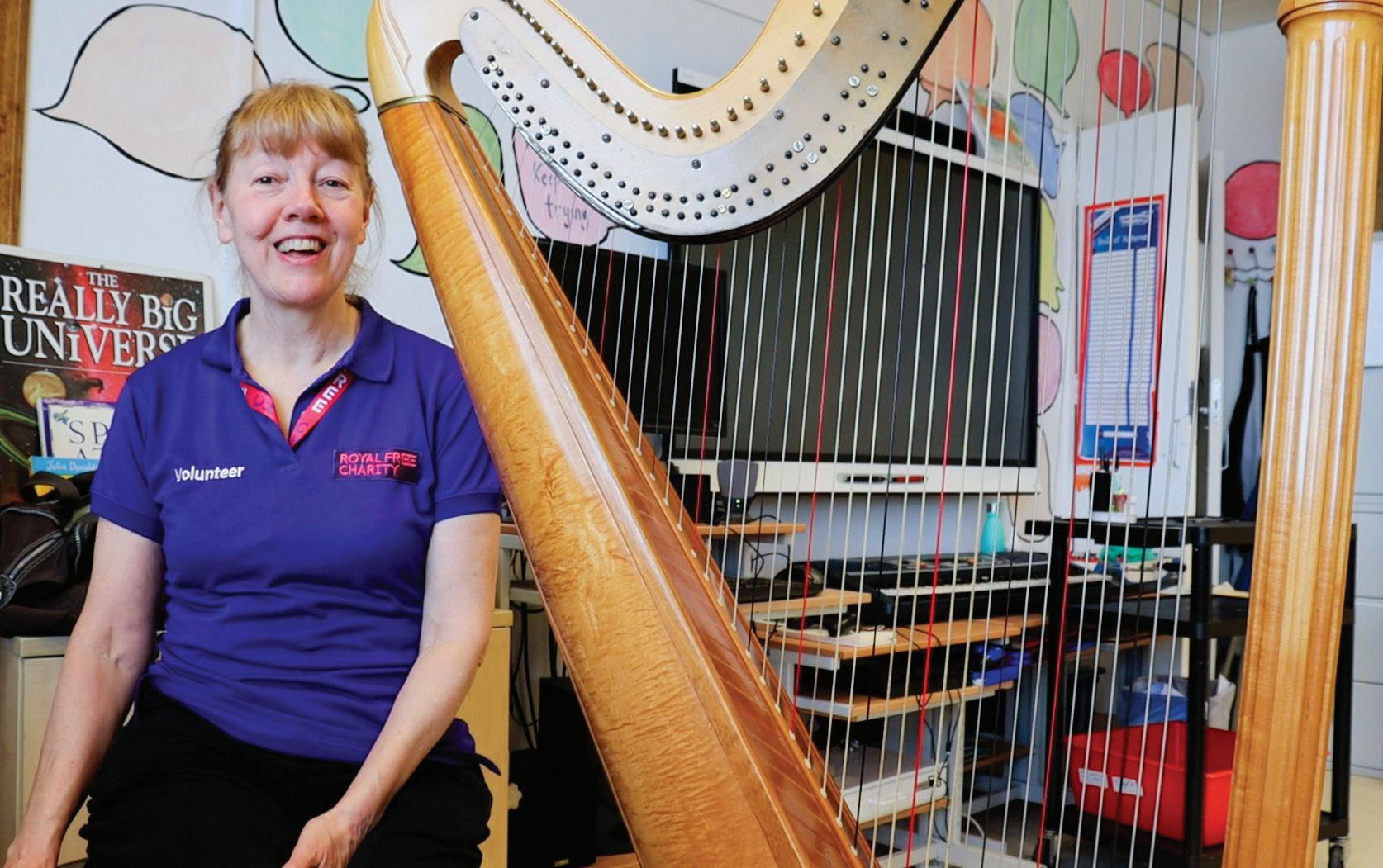
usicians Matt Smith and Luca Boscagin are familiar faces across the Royal Free London’s hospitals, performing live guitar music and songs.
Matt, a music teacher at the Royal Free Hospital’s children’s school, has been performing live music with his guitar for patients and staff since 2017.
“To be able to distract people for a second or two from what they might be going through is really valuable to me, and makes me feel I’m contributing something,” said Matt.
Focusing predominantly on the dementia and paediatrics wards, Matt has had many moving moments over the past seven years.
“A few years ago, I had an email from someone saying thank you: I played Somewhere Over the Rainbow and the family said that was the last thing that this person heard,” he said. “That kind of significance is really intense and makes it feel worthwhile.”
Luca Boscagin has been a musical performer for 40 years and now brings his talent to staff and patients at Barnet, Chase Farm and the Royal Free hospitals.
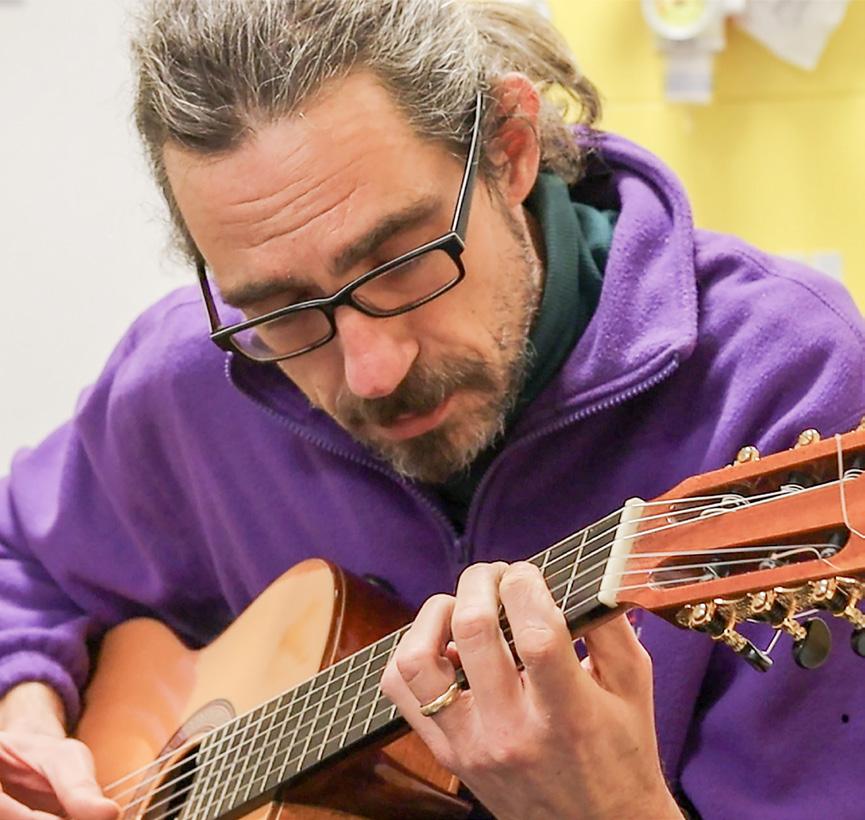
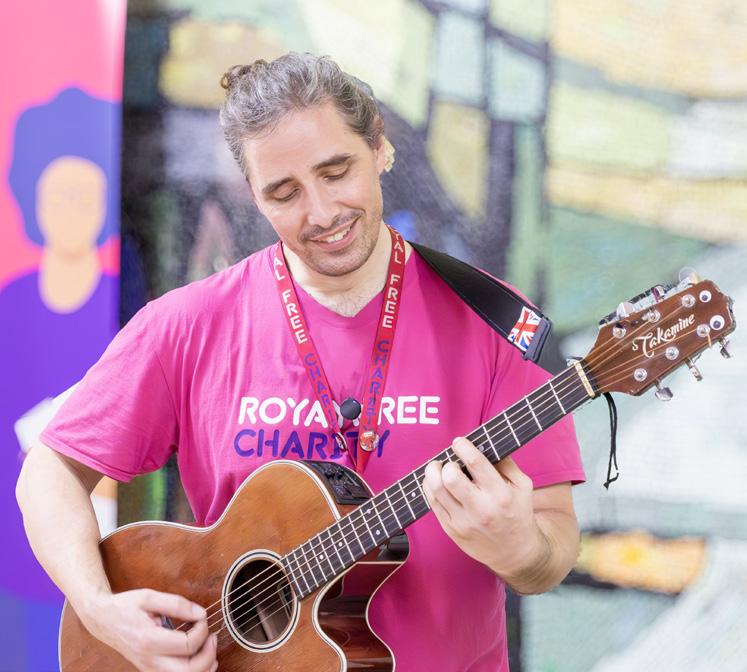
“It’s become the highlight of my week,” he said. “I rediscovered what music is about: it’s giving something good to people.”
Since he began visiting the hospitals in August 2023, Luca has experienced many moving moments and “beautiful reactions” while playing guitar to patients on the wards and chemotherapy suite.
Elsewhere, Luca has noticed the profound impact music has on patients with dementia. He explained: “I play songs like We’ll Meet Again and they love it - they start singing along and they remember the words to the songs.”
“Music is the purest form of art that I know,” he said.
Most requested songs: ALongWaytoTipperary and MyWay Most requested artists: Elvis, Bob Dylan, Frank Sinatra and Bob Marley
▲ Luca Boscagin ▲ Matt Smithoss Blake is the curator of the Royal Free Charity’s art collection.
For Joss, the importance of art in hospitals extends beyond decoration. “Art brings a sense of calm to our environment,” he explains, highlighting its soothing effect on patients who are often navigating challenging times.
Joss’s approach to curating art goes beyond the canvas; it expresses inclusivity, multiculturism and collaboration.
He actively involves hospital staff in the selection process, ensuring their preferences and input are considered.
Joss explained: “A sense of ownership and pride in the hospital’s artistic landscape is important. Our hospital corridors cover somewhere between six to eight miles, it’s a broad palette, so input and suggestions from staff are always valued.”
The universal appeal of art often brings positive reactions:
“It’s amazing to see the reaction of people who just enjoy the artwork,” Joss said.
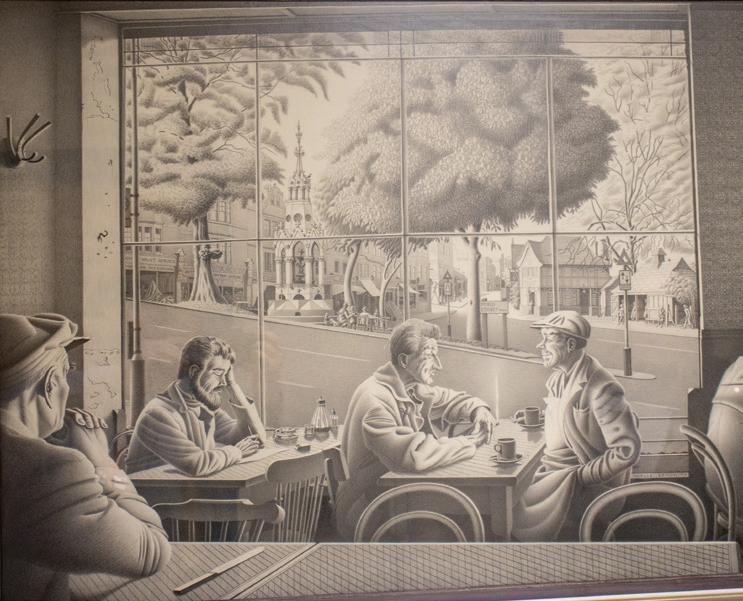
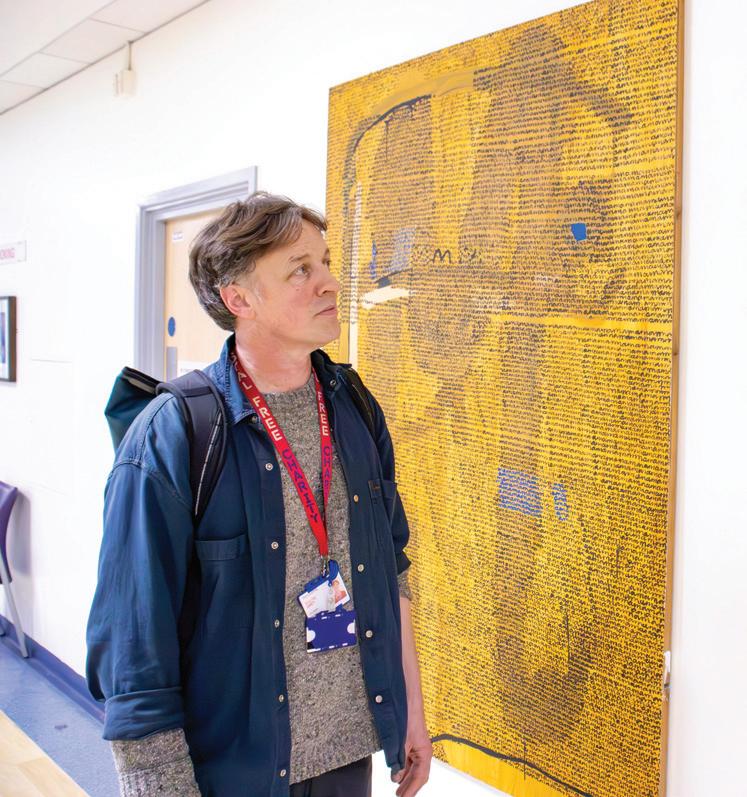
“It happens all the time, from families, children, professors and researchers. It’s a very interesting process to witness.”
A series of paintings by Simon Black are a current patient and visitor favourite, Joss explained: “This is a commissioned oil on canvas piece which perfectly depicts the many cogs that turn to run an NHS hospital. It perfectly captures those who are not always seen, the cleaners, surgeons and maintenance teams. Simon’s paintings perfectly capture everyone.”
When asked about the diversity of artwork in the collection, Joss said: “We have a vast collection of art, from artists across the world. This is important, as we look to represent staff and visitors coming from different cultures, different walks of life.”
Looking ahead, Joss envisions a future where art continues to enrich hospital environments. Through Joss’s efforts, the Royal Free London’s hospitals are not just places of healing but vibrant galleries that uplift the spirits of those who need it most.
▲ Pond Street Café by Noelle Sandwith, the greatgreat granddaughter of William Marsden who founded the Royal Free Hospital. ▲ Joss admiring one of many works of art featured at the Royal Free Hospital.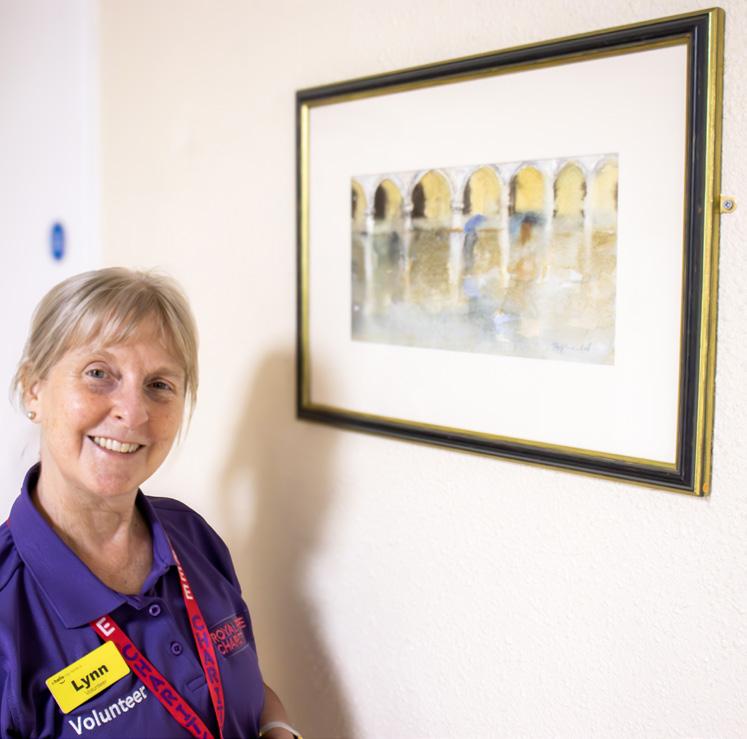
n innovative approach to patient care has been introduced to patients on the vascular unit at the Royal Free Hospital. The art tour, introduced by Dr Maria Goddard, physical activity clinical champion, blends art and movement to promote faster recovery.
The art tour encourages patients to explore the floor’s corridors, decorated with a range of artworks through a guided tour.
“The tour not only motivates patients to move but provides a therapeutic escape from the confines of illness,” explained Dr. Goddard. “It targets patients whose conditions may benefit most from increased physical activity.”
The tour is led by Royal Free Charity volunteers such as Lynn Higson, an artist and former art teacher, who not only continues to educate but also inspires patients during these tours. Lynn’s thought-provoking commentary prompts patients to consider the stories behind each artwork.
Reflecting on her involvement, Lynn said: “It’s a joy for me to continue doing what I love. Patients often leave the tour feeling fulfilled and eager to share their experience with visiting family. It’s nice to be able to give back something that comes so naturally to me that I know will help.”
With hopes for expanded tours and increased volunteer participation, Dr Goddard encourages a holistic approach to healthcare which prioritises emotional and psychological wellbeing.
Dr Goddard’s favourite piece of art is the metal man sculpture in the stairwell of the Royal Free Hospital, representing strength and support, echoing the art tour’s mission to guide patients towards healing and recovery.
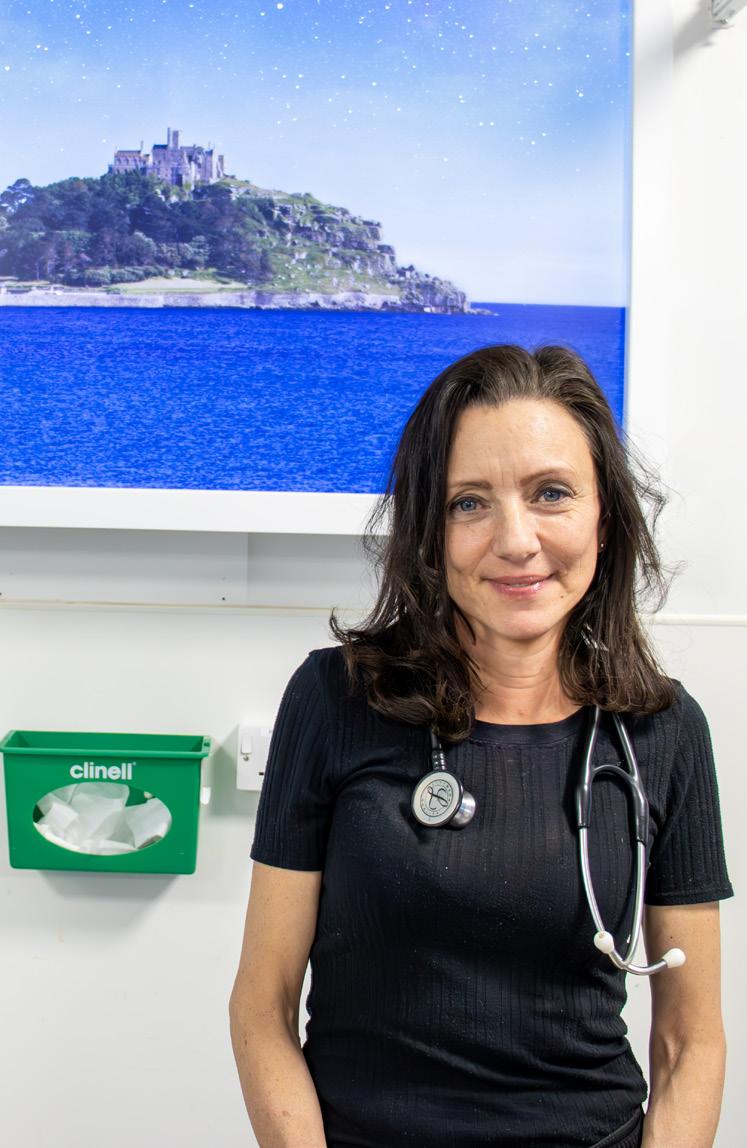 ▲ Art tour guide Lynn pictured with her favourite piece on the tour.
▲ Dr Maria Goddard designed the art tour to improve recovery times for patients.
▲ Art tour guide Lynn pictured with her favourite piece on the tour.
▲ Dr Maria Goddard designed the art tour to improve recovery times for patients.
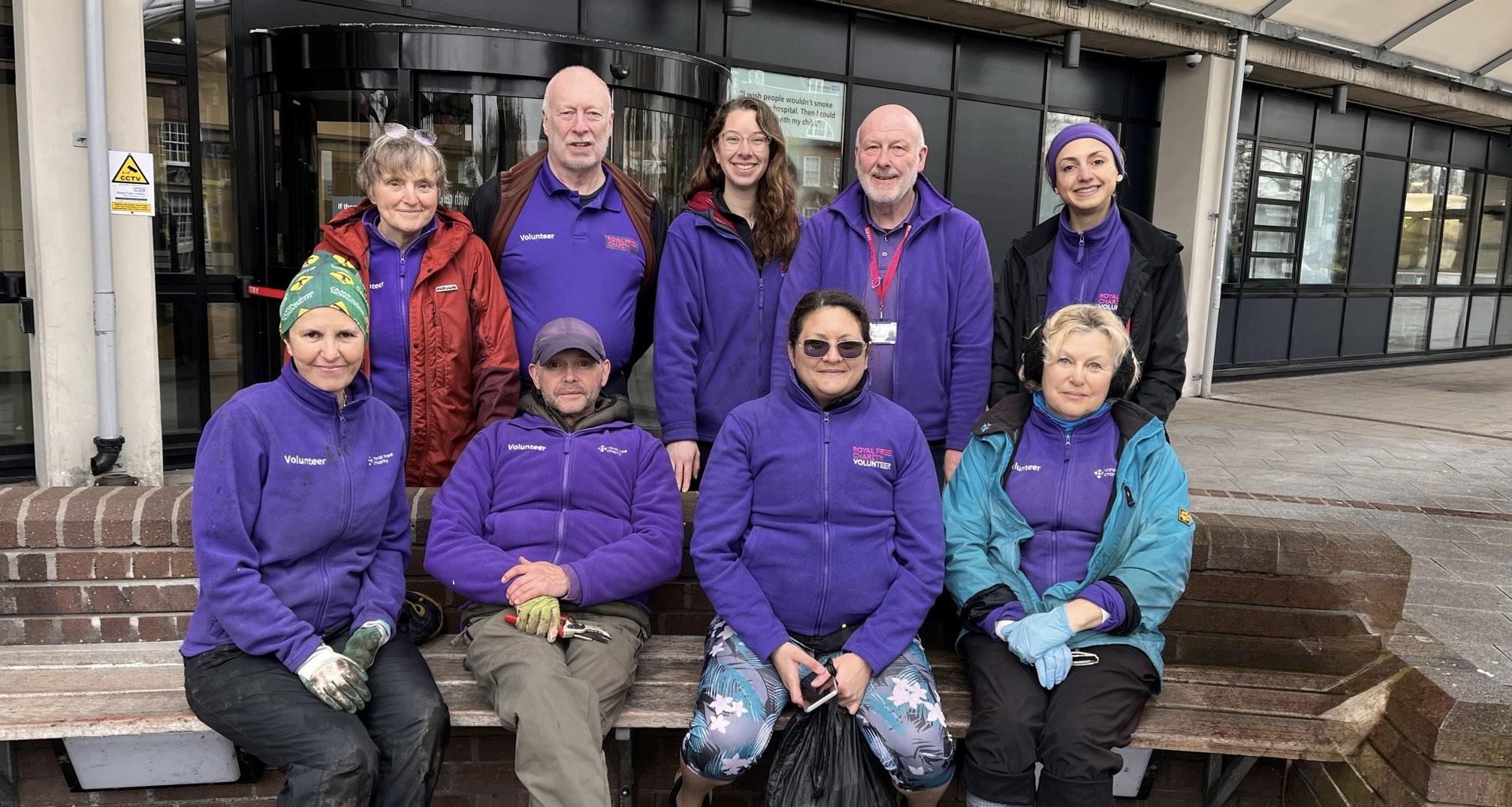
group of dedicated, green-fingered volunteers is responsible for the stunning gardens at the front of the Royal Free Hospital in Hampstead and the terraces of the neighbouring Pears Building.
The volunteer gardening group began nine years ago with a focus on the untended areas along Pond Street.
Since then, the group has transformed the whole area for the benefit of patients, staff, visitors and residents, tailoring the planting to the conditions of each space.
I have treatment every week at the Royal Free. Whenever I come out of the hospital, the gardens make me feel less frightened.
Royal Free Hospital patient
Charlotte Gascoigne, local resident and volunteer gardener, explained: “From the shady spaces of the Marlborough Garden staff area to the sunny terraces of the Pears Building, there are a lot of factors to consider.
“As well as making sure there are interesting things happening all year round, we’re building in support for the local ecosystem with our planting choices. For example, we try to incorporate plants that provide food for the birds in the colder months or attract pollinators.”
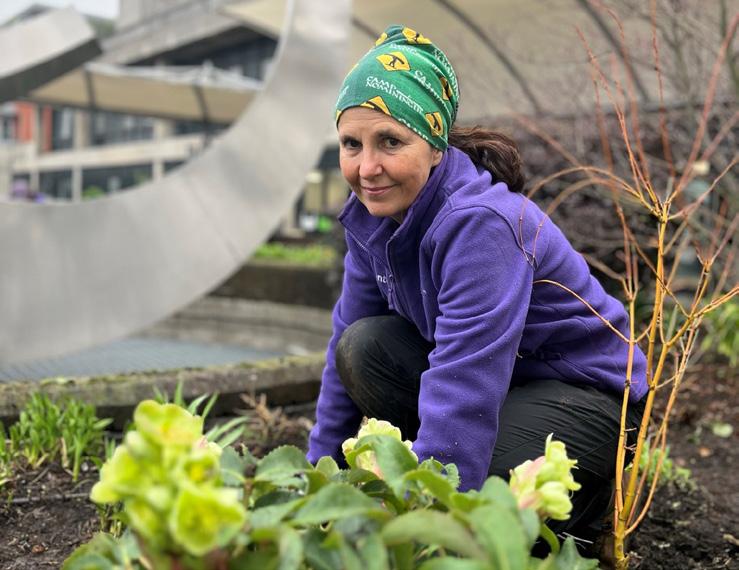 ▲ The garden volunteer team
▲ The garden volunteer team

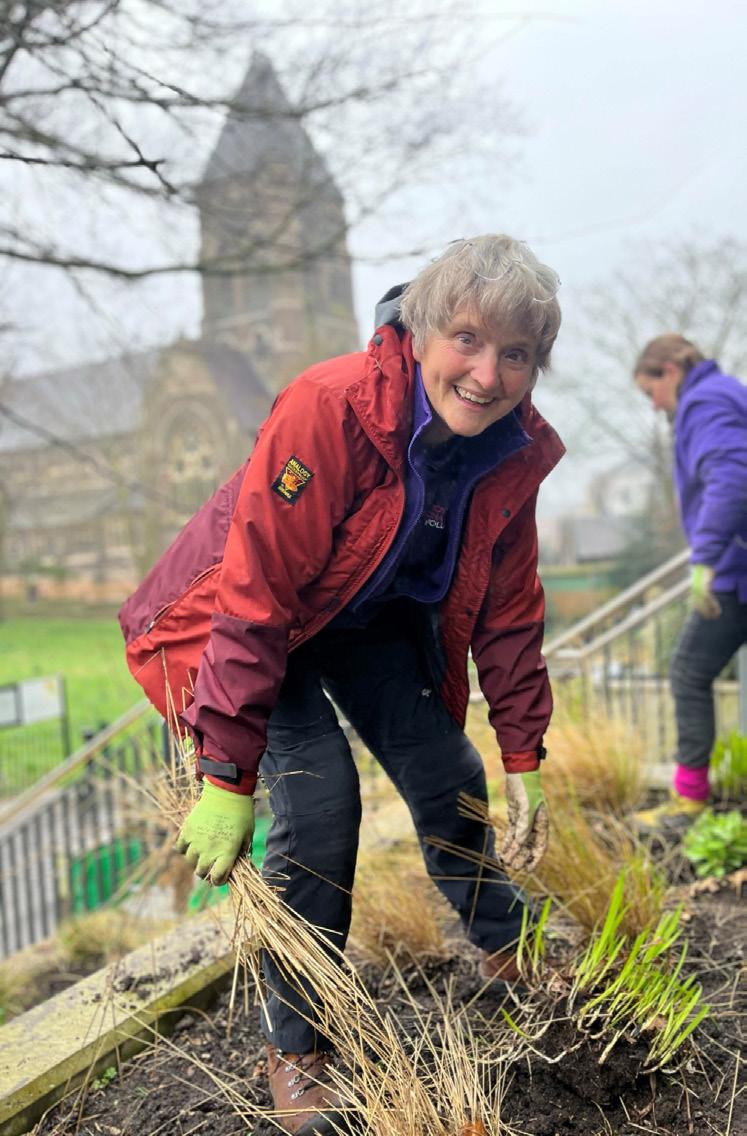
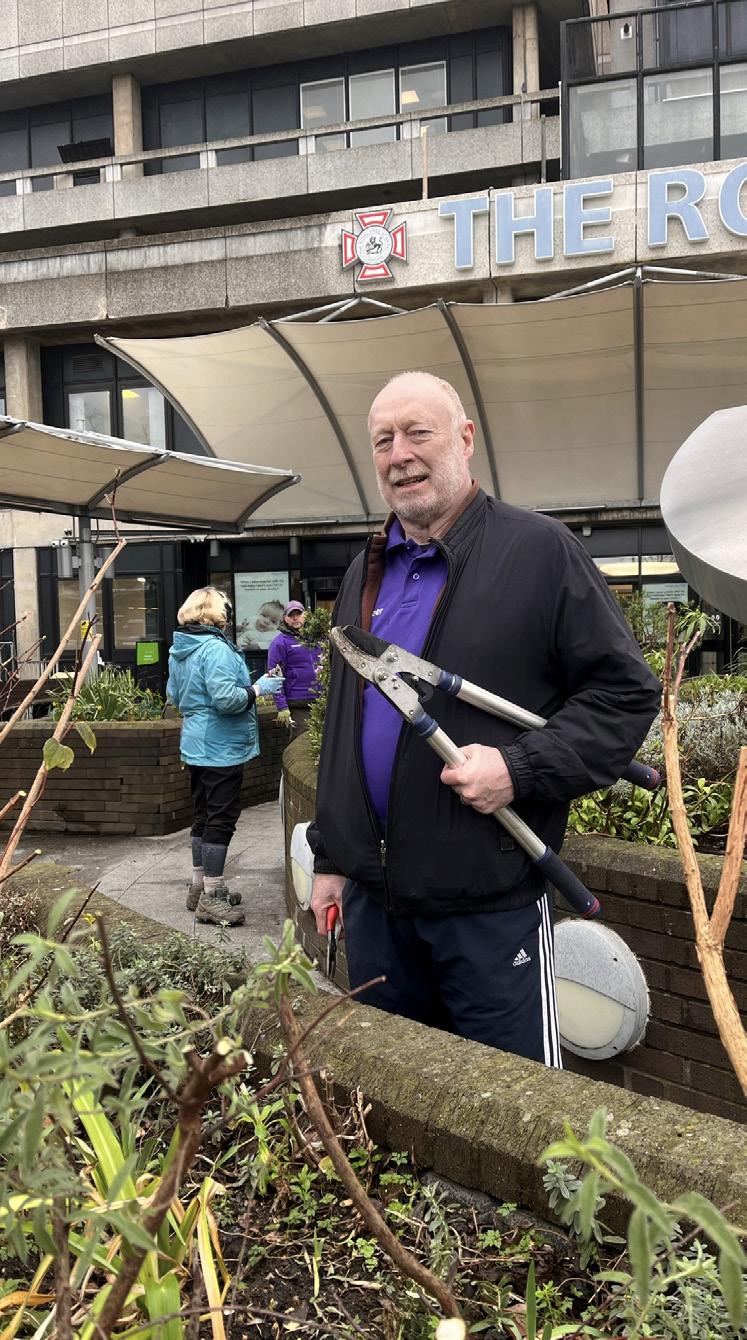
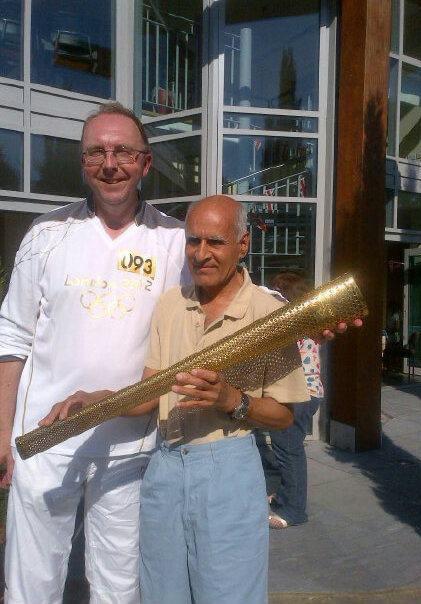
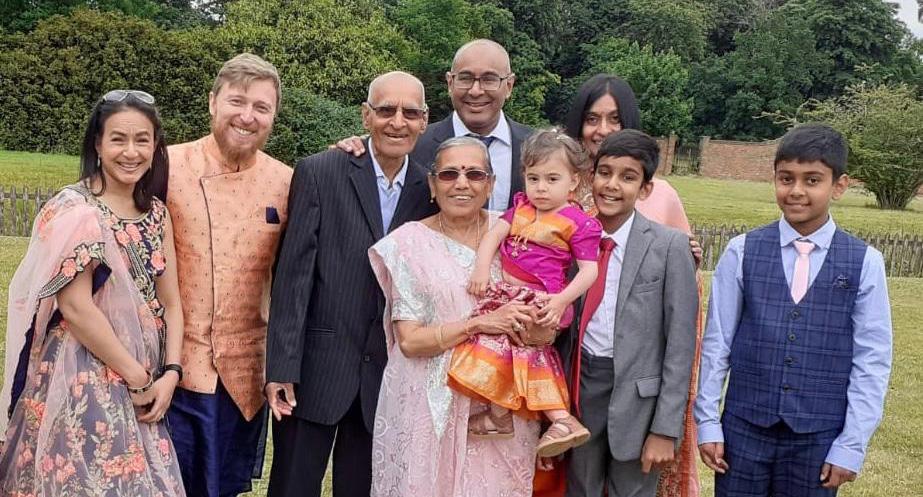 ▲ Ratilal pictured with his family
▲ Ratilal pictured with the Olympic torch in Barnet
▲ Ratilal pictured with his family
▲ Ratilal pictured with the Olympic torch in Barnet
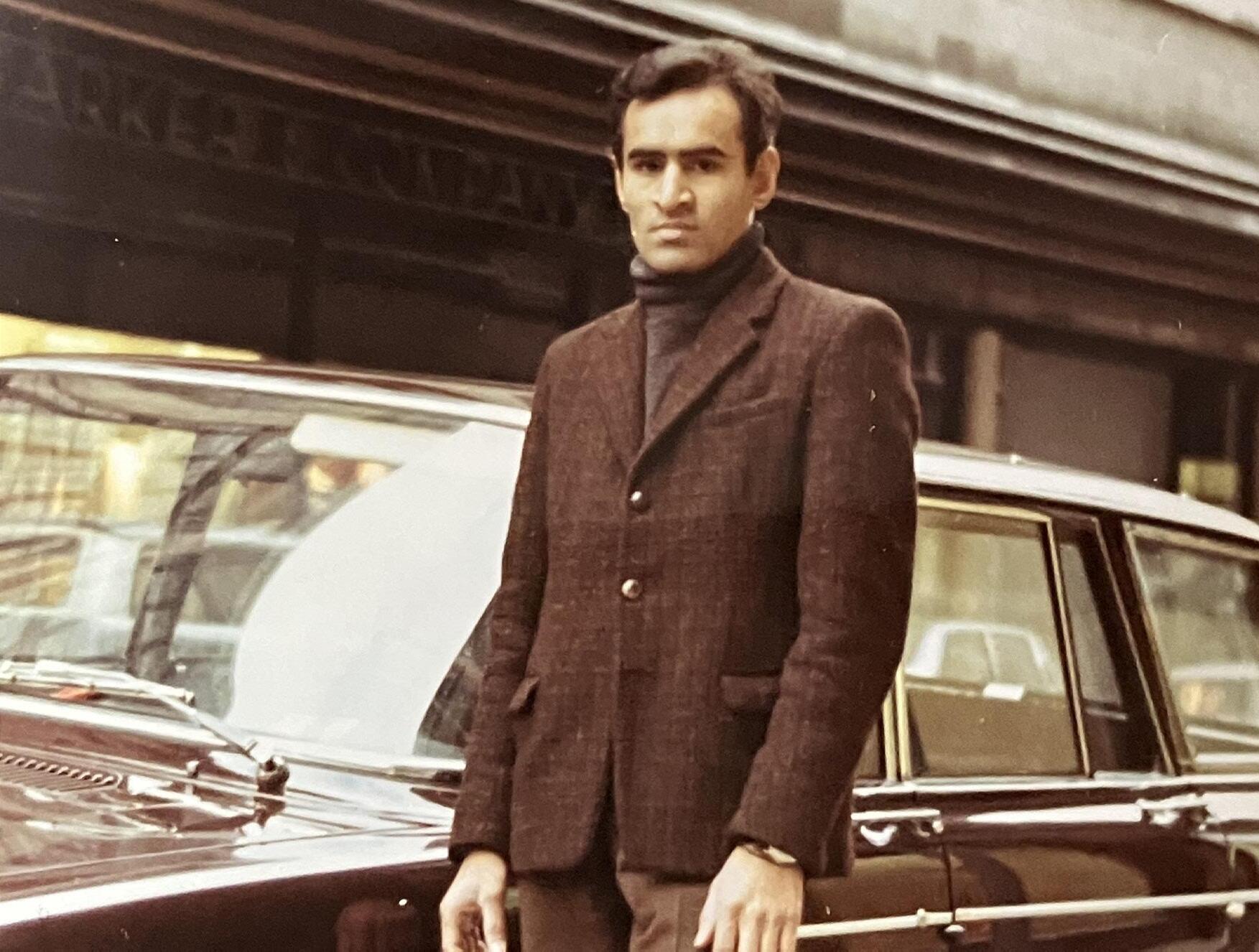
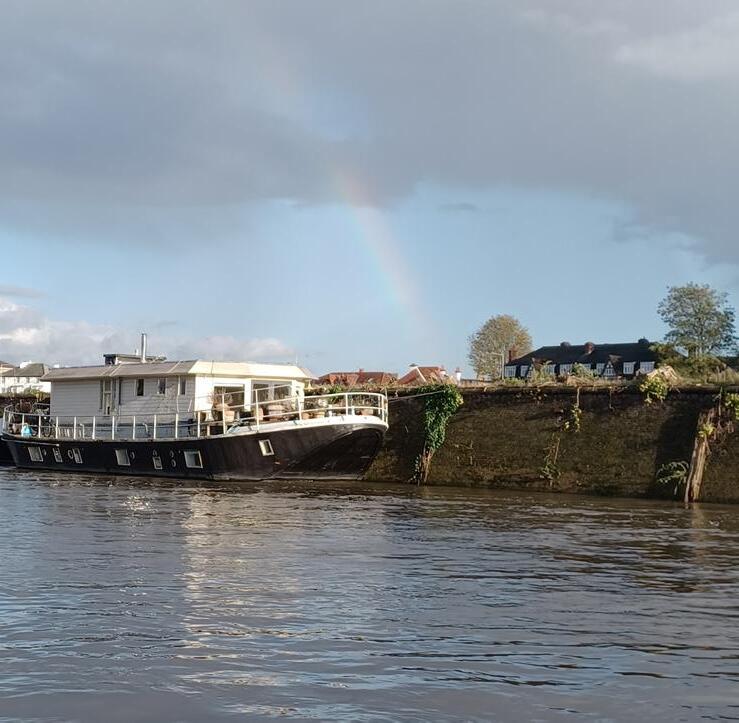 ▲ In November, the family, including new granddaughter Poppy, gathered to scatter Ratilal’s ashes at a scenic spot on the Thames river.
▲ In November, the family, including new granddaughter Poppy, gathered to scatter Ratilal’s ashes at a scenic spot on the Thames river.
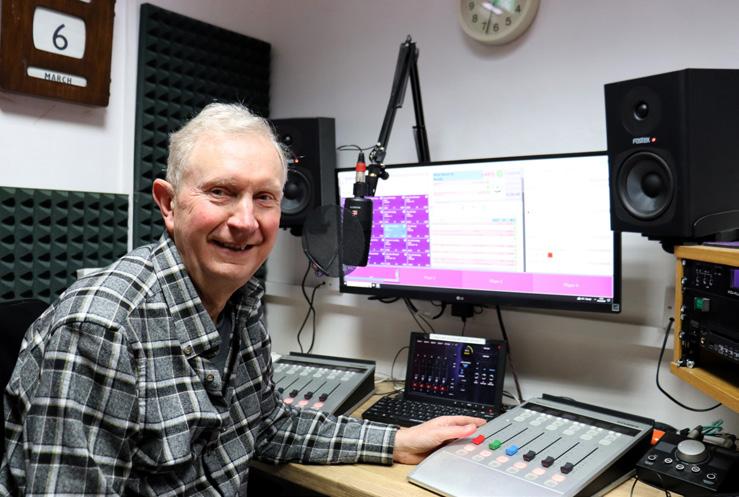
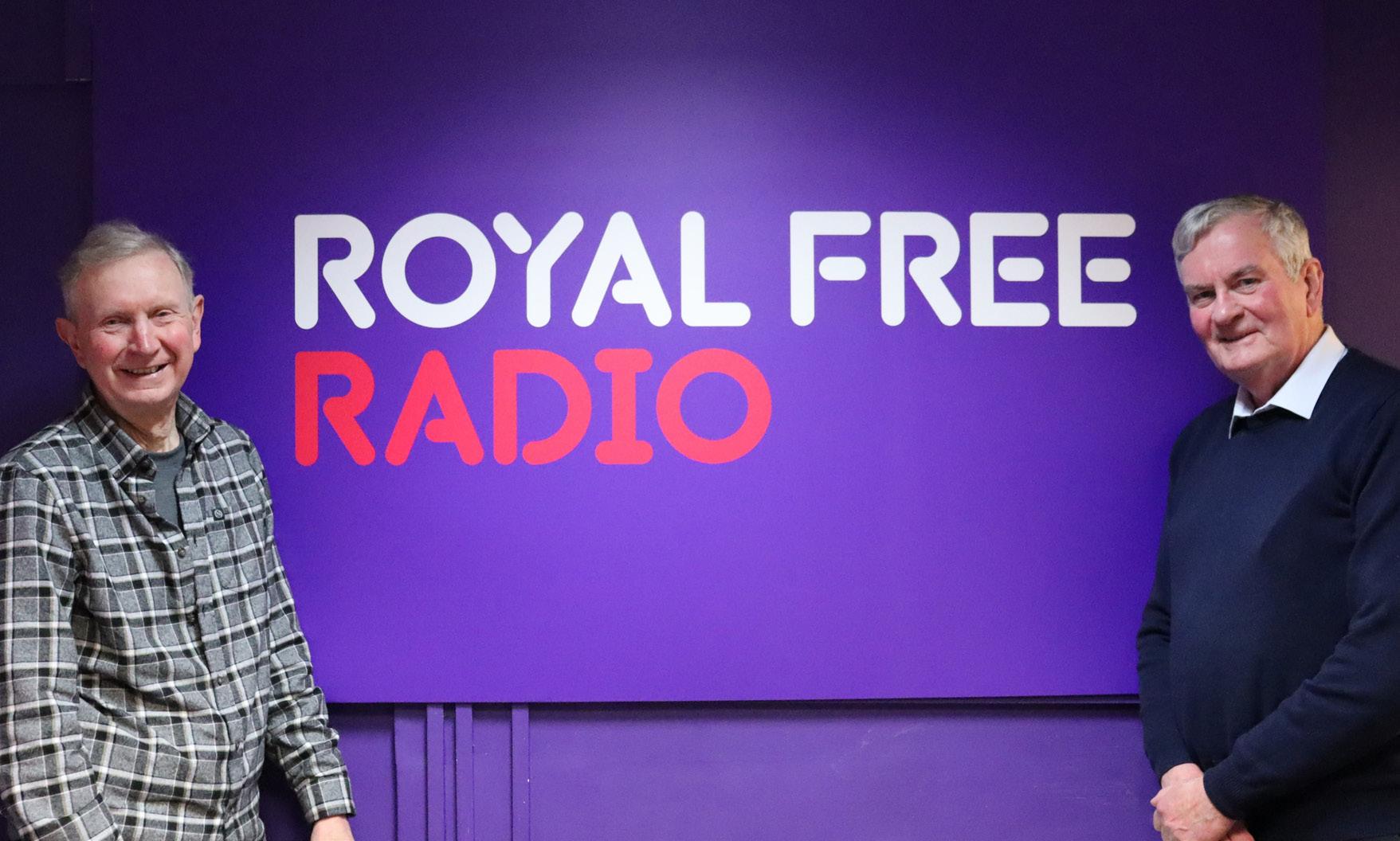 ▲ Andy Higgins, station manager
▲ Andy Higgins, station manager
